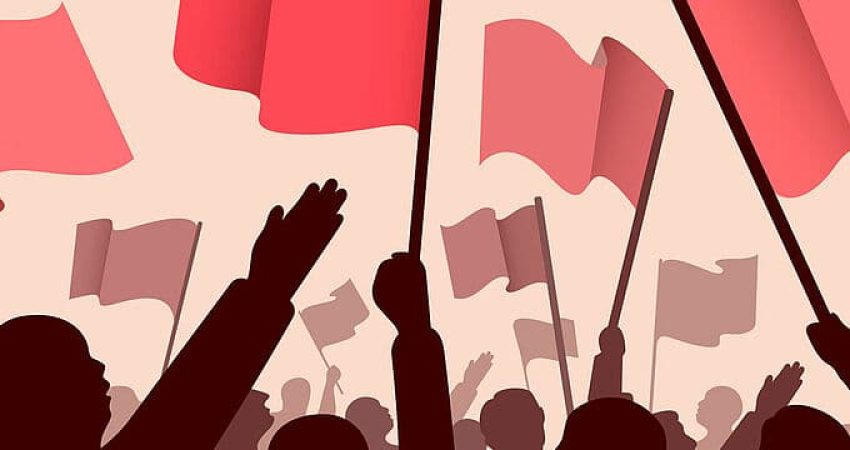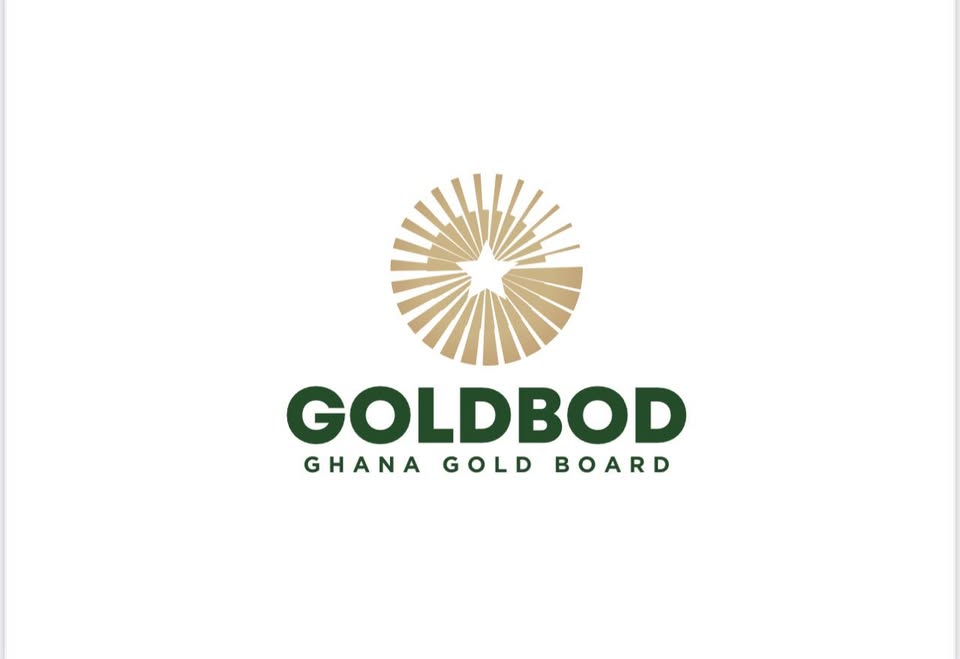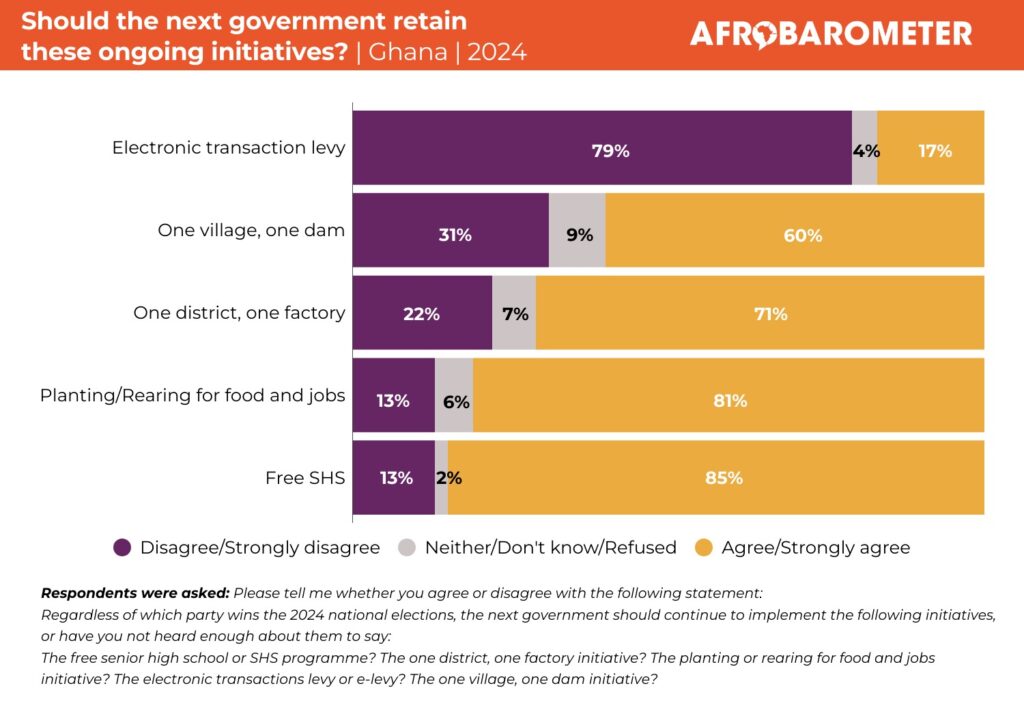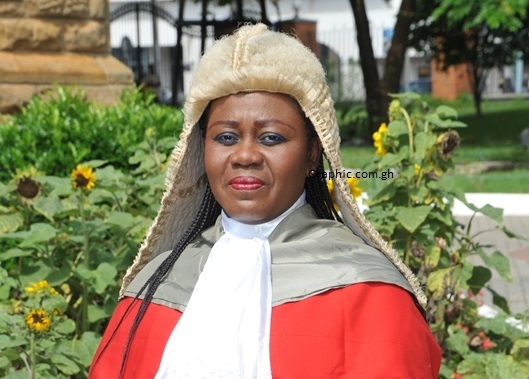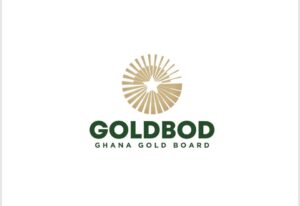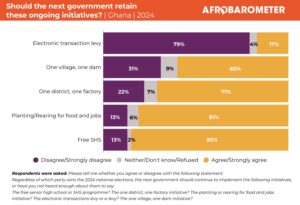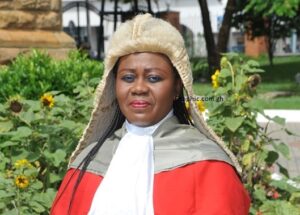I have often argued that Ghanaians have made their “peace” with democracy as the preferred system of government. This, I back up with the patterns I see in their responses to three particular questions in the Afrobaromter survey – a) support for democracy, b) method for choosing leaders, and c) rejection of authoritarian forms of government. The percentage of citizens who a) say that democracy is preferable to any other form of government, b) say that leaders must be chosen through regular elections, and c) say that they disapprove of the military, one party and the one-man rule is the basis of my contention that we are at a generally good place where democracy is concerned. But beyond how much we prefer democracy, is the other vexing question of how much of democracy we believe we are getting. In the last couple of years, the question of how much democracy citizens believe they are getting has been largely measured by the extent to which citizens say they are satisfied with the way democracy is working, a question also asked by the Afrobarometer survey.
The Balance Sheet Concept
The idea of a democracy balance sheet compares how much we say we want democracy (as measured by our support for democracy) with how much of democracy we feel we are getting (measured by our satisfaction with the way democracy is working). In constructing the balance sheet, three outcomes emerge. A surplus, positive number means that citizens feel they are getting more democracy (satisfaction with the way democracy is working) than they want (support for democracy). I view that as a very positive development. A deficit, a negative number, means that citizens feel they are getting less democracy (satisfaction with the way democracy is working) than they want (support for democracy). I view that as a very negative development. A balance occurs when citizens feel they are getting the same amount of democracy they demand (support for democracy) as they are getting (satisfaction with the way democracy is working).
Our Overall Balance Sheet
Over the course of eight rounds of the Afrobarometer survey, Ghana’s democracy balance sheet has recorded deficits, seven out of eight times, where satisfaction with the way democracy is working has lagged support for democracy. The deficit was at its highest in Round 1 (1999) and its lowest in Round 2 (2002). In Round 4 (2008), the democracy balance sheet showed a surplus, where citizens’ satisfaction with the way democracy was working emerged a little higher than support for democracy. Cumulatively, the results of eight rounds of the survey show that our democracy balance sheet is in a deficit (-9%) where 75% of Ghanaians say they support democracy while 66% say they are satisfied with the way democracy is working. There is a point worth noting about our support for and satisfaction with democracy in Round 2, 2002. In that year.
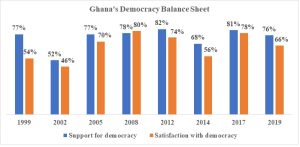
What Drives Our Democracy Deficits?
To explore possible drivers of our democracy deficits, I explored three broad areas to see whether the patterns observed mirrored the patterns observed in our democracy balance sheet. The three broad areas are a) trust in institutions that make democracy work (I examined ten institutions and the average percentage of Ghanaians who said they trust these institutions a lot); b) perceptions of the fight against corruption (the percentage of Ghanaians who perceive the fight against corruption as being handled fairly well/very well by the government) and c) government performance (I examined nine public problem domains and the average percentage of Ghanaians who rated government performance as fairly well or very well.)

I observed three patterns. 1) Improvements in the evaluation of government performance corresponded with improvements in the democracy balance sheet. 2) In the first four rounds (1999, 2002, 2005, 2008) the changes in trust in institutions that make democracy work did not consistently correspond with changes in the democracy balance sheet. However, since Round 5 (2012) when trust improves, the democracy balance sheet improves. 3) In the first four rounds (1999, 2002, 2005, and 2008) the changes in perceptions of the fight against corruption did not consistently correspond with changes in the democracy balance sheet. However, since Round 5 (2012) when the perception of the fight against corruption improves, the democracy balance sheet improves.
Democratic consolidation is a work in progress. To improve our democracy balance sheet – very low deficits or surpluses, it is very clear that successive governments must adequately address key public problems, institutions must work hard to earn high levels of trust from citizens, and we cannot fail in our commitment to fight corruption.

Dr. John Osae-Kwapong is a Democracy and Governance (D&D) Fellow at CDD-Ghana


